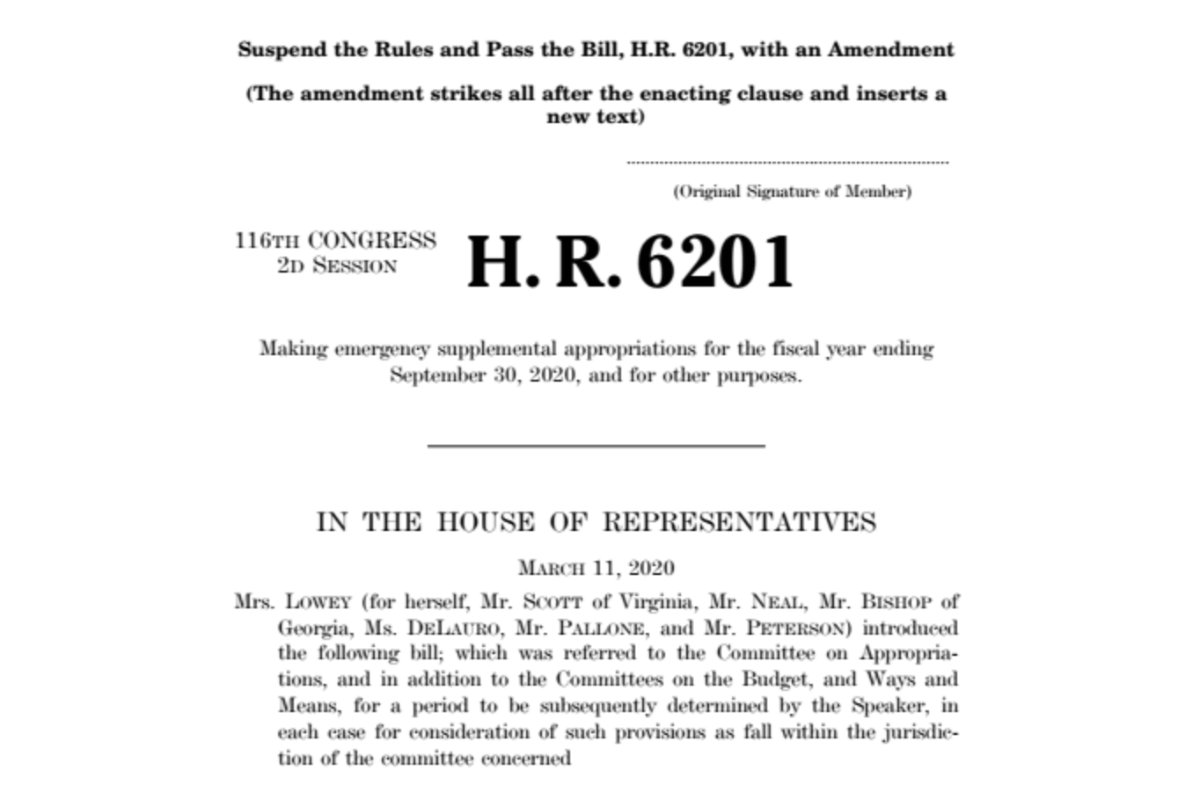Update: On March 18, 2020, President Trump signed H.R. 6201, the Families First Coronavirus Response Act.
Below is a summary of the nutrition provisions. H.R. 6201, in addition to providing much needed nutrition assistance, allows for free COVID-19 testing, protects public health workers, and establishes paid leave during the emergency.
School Meal Waivers
- Cost Increase Waiver: H.R. 6201 allows USDA to spend additional funds during the public health emergency.
- Congregate Feeding Waiver: The bill suspends congregate feeding requirements, allowing states to automatically provide grab-and-go meals rather than first applying to USDA for a waiver.
- Meal Pattern Waiver: H.R. 6201 also allows USDA to waive requirements for nutrition standards if there are food shortages.
- Reporting: Within one year, states must submit a report to USDA describing their use of waivers during this time. States must report whether waivers improved meal service.
Pandemic EBT (P-EBT) in Addition to School Meals
- EBT Use: H.R. 6201 allows states to provide electronic benefit transfers (EBT) to families with children otherwise eligible to receive free or reduced-price meals. For states to issue funds, schools must be closed for at least five consecutive days.
- State agencies, with permission from USDA, may establish emergency standards for eligibility and benefit levels. Benefits should equal or exceed the free meal rate for each child.
- For the Commonwealth of the Northern Mariana Islands, Puerto Rico, and American Samoa, Congress authorizes $100,000,000 to provide grants for nutrition assistance.
Supplemental Nutrition Assistance Program (SNAP)
- Work Requirements: H.R. 6201 suspends the work and work training requirements for able-bodied dependents without disabilities (ABAWDs).
- The work and work training requirements are suspended in the first month following enactment through the end of the month following the public health emergency. SNAP usages during the suspension will not count towards ABAWDs’ three-month SNAP allowance.
- Note: On Friday, the U.S. District of Columbia also temporarily suspended the work and work training requirements. The court granted an injunction to stop April 1st implementation of the new SNAP rule. New York City was one of the litigants opposing the harmful USDA rule.
- Additional Benefits: With USDA approval, states can issue additional, emergency SNAP benefits up to the maximum monthly allotment.
- Reporting: Within eighteen months, USDA must submit a report to Congress describing the steps taken to address food security needs during the emergency, data supporting states' requests, and any measures that USDA denied. The report may also include recommendations alter USDA’s existing legal authority so that USDA, states, and localities are better prepared for future health emergencies.
Child and Adult Care Food Program (CACFP)
- Waivers: The bill allows USDA to temporarily suspend congregate feeding rules and waive requirements for the meal pattern.
Special Supplemental Nutrition Program for Women, Infants, and Children (WIC)
- Appropriations: H.R. 6201 authorizes an additional $500,000,000 for WIC available through September 30, 2021.
Emergency Food Assistance Program (TEFAP)
- Appropriations: H.R. 6201 authorizes an additional $400,000,000 for food banks to meet increased demand available through September 30, 2021. Of the funds made available, the Secretary may use up to $100,000,000 for distribution costs.
Senior Nutrition Program
- Appropriations: H.R. 6201 authorizes an additional $250,000,000 for senior meals. $160,000,000 are available for home-delivered and pre-packaged meals for low-income homebound seniors; 80,000,000 are available for Congregate Nutrition Services; and the remaining $10,000,000 are available for Nutrition Services for Native Americans.
